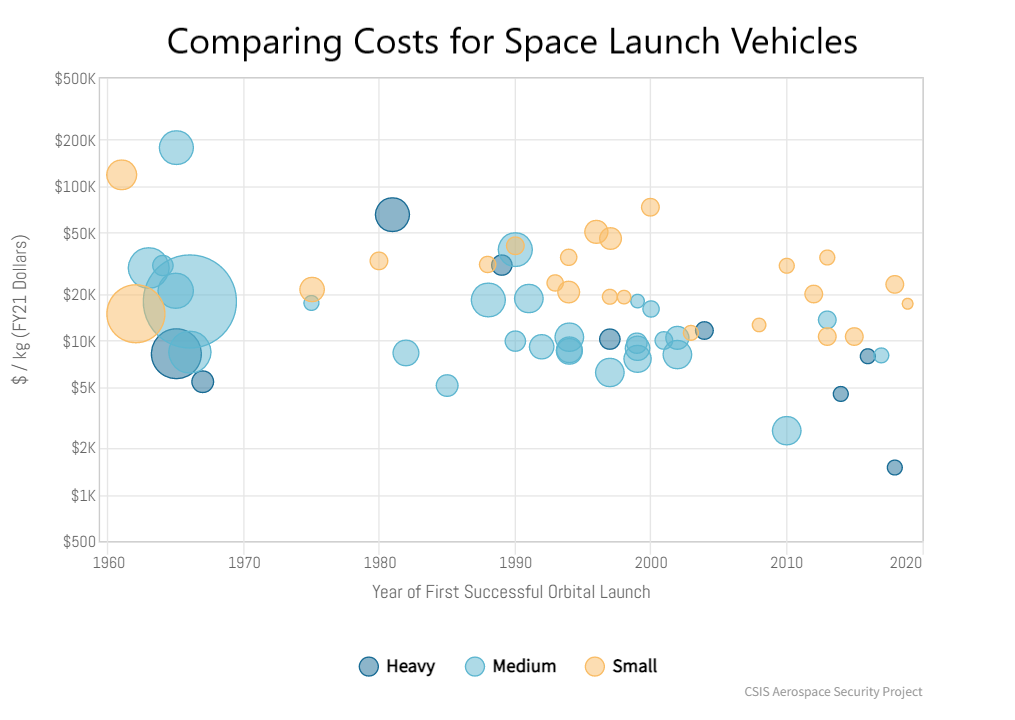Cybersecurity is beginning to become like insurance for many companies. They simply can’t do business without it. So, while some may argue that cybersecurity stocks belong in the speculative portion of a portfolio, there are a number of names that investors should consider buying and holding for the foreseeable future.
Fueling demand for cybersecurity is the rise in cybercrime and the increasing sophistication of cybercriminals. Then there’s the cost of cybercrime, which is expected to total $7 trillion globally this year. The prevalence of online software and an ever-increasing number of online devices, many of which need to be managed in remote settings, will only continue to drive demand.
According to Fortune Business Insights, the global cybersecurity market is expected to grow at a compound annual rate of 13.4%, hitting $376 billion by 2029.
Some cybersecurity stocks still sport lofty valuations. Others are not consistently profitable. But if you’re looking for an area where growth is nearly assured, cybersecurity is it.
Here are seven cybersecurity stocks you can buy and hold for the long haul.
| PANW | Palo Alto Networks | $166.73 |
| MSFT | Microsoft | $231.32 |
| ZS | Zscaler | $151.03 |
| CRWD | CrowdStrike | $161.77 |
| FTNT | Fortinet | $55.49 |
| S | SentinelOne | $23.58 |
| CACI | CACI International | $279.62 |
Cybersecurity Stocks: Palo Alto Networks (PANW)

Palo Alto Networks (NASDAQ:PANW) is a leading provider of internet security solutions and has an international roster of enterprise customers. Over the past several years, it has enhanced its lineup of next-generation security offerings as its growth accelerated. Yet, the company believes it only has a sliver of what it perceives to be its total addressable market.
Palo Alto Networks closed out its fiscal year in August and proved why it’s one of the leading names in the space. The company reported that subscription and support revenue now account for more than 80% of billings. That’s the kind of metric that analysts and investors love because it means the company has predictable revenue. The company also achieved GAAP profitability during the full fiscal year.
PANW stock is down just 10% year to date. Analsysts’ consensus price target, according to TipRanks, is $228.73, implying upside of 37%.
Microsoft (MSFT)

When thinking about cybersecurity stocks to buy, Microsoft (NASDAQ:MSFT) may not be the first name that comes to mind. If you’re looking for an under-the-radar growth stock in the cybersecurity sector, MSFT stock is not for you. But if you want exposure to the sector in a way that will help you sleep easily no matter what’s happening in the market, Microsoft is a compelling choice.
The company isn’t a pure-play cybersecurity company. But a growing part of its revenue comes from its cybersecurity business. And all of the company’s security tools can be integrated into its cloud-based Office 365 software. Furthermore, the company has not been shy about using its considerable war chest to grow its cybersecurity business through acquisition. In 2021, Microsoft spent over $500 million to acquire RiskIQ and CloudKnox Security.
MSFT stock fell nearly 8% today following the release of its fiscal first-quarter results, bringing its 12-month decline to 25%. While it beat estimates on the top and bottom lines, cloud revenue fell short of expectations and its guidance disappointed. Despite the cyclical pressures weighing on the company, analysts remain bullish on the stock. A number of them reiterated their “buy” ratings following the announcement, with one of them saying that Microsoft is “still the cloud king.”
Cybersecurity Stocks: Zscaler (ZS)

A growing trend in the cybersecurity sector is the “zero-trust” model, which operates on the central thesis that organizations shouldn’t trust anything outside – or inside – their network perimeter. Therefore, any user trying to connect to an organization’s network has to be verified. And that perimeter is widening as more companies embrace remote work.
This is the area where ZScaler (NASDAQ:ZS) comes in. Its Zero Trust Exchange platform focuses on allowing all users on a network to safely browse the internet and access applications no matter what device they’re on or where they are.
Despite shares being down more than 50% over the past year, Zscaler has been receiving accolades from analysts who view the company as a likely beneficiary of the increased focus on cybersecurity. While the company is not expected to be profitable in the next few years, projected revenue and earnings growth make this one of my cybersecurity stocks to buy and hold.
CrowdStrike (CRWD)

CrowdStrike (NASDAQ:CRWD) is the third largest cybersecurity company in terms of market cap even after its 42% decline over the past year. CrowdStrike offers cloud-native solutions that are well-suited for companies that are supporting remote work. The company’s product offerings focus on helping move existing security protocols into the cloud.
I won’t try to convince anyone that the company’s balance sheet is in great shape. But the same imperfections can be found with most of the stocks on this list. In terms of cybersecurity stocks to buy and hold for future gains, CrowdStrike appears to have no problem meeting any of its financial obligations. That gives the company time to grow into its valuation.
Analysts seem to agree. They give CRWD stock a price target of $236.64, 46% above the current price. And with institutional investors owning 77% of shares, this is likely a staple in many growth funds.
Cybersecurity Stocks: Fortinet (FTNT)

One of the more appealing targets for cyberattacks will be data centers, which are the lifeblood of every business that uses them. Not surprisingly, companies are not skimping on their cybersecurity. And Fortinet (NASDAQ:FTNT) specializes in providing solutions specifically geared toward protecting data centers.
FTNT stock is down just 16% over the past year compared with a 26% loss for the Nasdaq. Moreover, shares have rallied more than 20% since hitting a 52-week low two weeks ago.
The stock carries a premium valuation, trading at 42 time forward earnings. Yet, the company is solidly profitable and is expected to grow revenue and earnings by more than 20% a year through 2025. If it can hit those growth targets, the company should grow into its valuation.
FTNT stock currently has 28% upside based on analysts’ average price target of $71.
SentinelOne (S)

I’m a sucker for a company that offers a unique selling proposition, especially in an increasingly crowded sector like cybersecurity. And that’s what I believe investors get with SentinelOne (NYSE:S).
Its cybersecurity solution “encompasses AI-powered prevention, detection, response and hunting across endpoints, containers, cloud workloads, and IoT devices in a single autonomous XDR platform.” XDR stands for extended detection response, and SentinelOne is using artificial intelligence to make decisions faster than humans ever could to avert cybersecurity threats.
The company has an impressive roster of clients that includes four Fortune 10 companies.
S stock is down 64% over the past 12 months. This presents an opportunity for speculative investors who are willing to hold onto the stock for the long haul.
Cybersecurity Stocks: CACI International (CACI)

The last of my cybersecurity stocks to buy and hold is CACI International (NYSE:CACI). Unlike many of the companies on this list, CACI stock is in the black for the year, up nearly 4%, and only slightly in the red on a 12-month basis. The company provides expertise and technology, including cybersecurity, to enterprise customers.
CACI International is entrenched with the national security and defense industries. In the past few months, the company has inked several contracts that should keep revenue flowing. And it counts a number of blue-chip companies among its customers.
Annual revenue and earnings growth is only projected to be in the single digits over the next few years. But CACI is already profitable and has a P/E ratio of just 18x earnings, making it one of the more conservative cybersecurity stocks to buy.
On the date of publication, Chris Markoch did not have (either directly or indirectly) any positions in the securities mentioned in this article. The opinions expressed in this article are those of the writer, subject to the InvestorPlace.com Publishing Guidelines.


